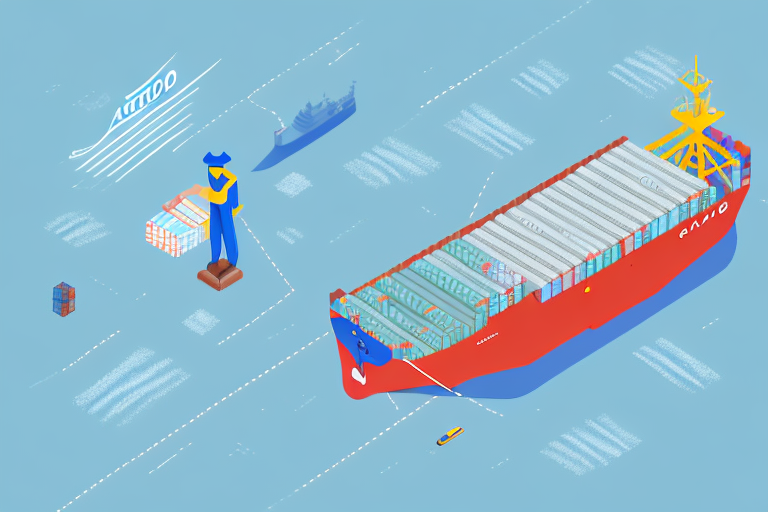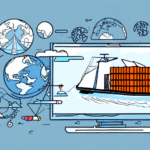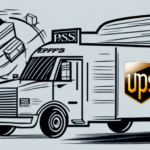Understanding Import Duties and Taxes with UPS Worldwide Express Freight International Shipments
Importing goods across international borders is a complex process that can be overwhelming for businesses. ShipScience offers a solution by facilitating efficient and timely delivery of shipments worldwide through UPS Worldwide Express Freight. However, a crucial aspect of international shipping that shippers must navigate is the payment of import duties and taxes. These fees are essential for international shipments and must be settled with the relevant authorities before goods can be released to the recipient.
Why Import Duties and Taxes are Critical for UPS Worldwide Express Freight International Shipments
Import duties and taxes are fundamental components of international trade, imposed by governments to regulate commerce and protect domestic industries. When shippers import goods into a country, they are legally required to pay these duties and taxes to the appropriate authorities. Non-compliance can result in severe penalties, including fines and the seizure of goods, leading to shipment delays and significant financial losses for businesses.
The amount of import duties and taxes varies by country and is based on the type of goods being imported. According to the World Bank, global trade regulations have become increasingly stringent, emphasizing the need for shippers to stay informed. Shippers should research and understand the import regulations of their destination country before shipping. UPS Worldwide Express Freight provides various tools, including a duty and tax calculator, to help estimate importing costs accurately. Properly accounting for these fees ensures smooth and timely delivery of international shipments.
The Role of Third Parties in Paying Import Duties and Taxes on Behalf of Shippers
Third-party logistics providers (3PLs), such as UPS Worldwide Express Freight, offer businesses a streamlined solution by managing the payment of import duties and taxes on their behalf. When businesses utilize UPS Worldwide Express Freight, the carrier handles the settlement of relevant import duties and taxes with authorities before delivering the shipment to its destination. This service helps businesses avoid the complexities and potential delays associated with direct fee payments.
Additionally, third-party providers can offer cost savings by leveraging their expertise and established relationships with customs authorities. They may negotiate lower duty rates or identify opportunities for duty exemptions and reductions, leading to significant savings for businesses that regularly import goods.
Different Types of Import Duties and Taxes Shippers May Encounter
When shipping internationally with UPS Worldwide Express Freight, shippers may encounter various types of import duties and taxes, including:
- Customs Duties: Charged based on the value of the imported goods and typically determined using the Harmonized System (HS) code.
- Value-Added Tax (VAT): Applied to the total value of the goods, including customs duties, varying by country.
- Excise Duty: Imposed on specific goods such as alcohol, tobacco, and fuel.
Understanding these different fees is crucial, as they can significantly impact shipping costs. Regulations surrounding these fees vary by country, making it essential for shippers to research and comprehend the requirements of each destination to avoid delays, fines, or seizure of goods.
Calculating Import Duties and Taxes for UPS Worldwide Express Freight International Shipments
To accurately calculate import duties and taxes for UPS Worldwide Express Freight international shipments, shippers should determine the following:
- The value of the goods being imported
- The country of origin
- The destination country
- The applicable HS code
Using these details, shippers can utilize UPS Worldwide Express Freight's duty and tax calculator for an estimate. However, it's important to note that these are estimates, and actual fees may vary slightly. Additionally, some countries have specific regulations and restrictions on certain goods, which may affect import duties and taxes. Shippers should be aware of these regulations and consider hiring a customs broker to assist with the customs clearance process and ensure compliance.
Tips for Reducing Import Duties and Taxes on International Shipments with UPS Worldwide Express Freight
Shippers can employ several strategies to minimize import duties and taxes on their international shipments:
- Ensure Accurate Documentation: Properly complete commercial invoices and provide clear descriptions of goods to prevent delays and overcharging.
- Utilize Free Trade Agreements: Take advantage of existing agreements between origin and destination countries to reduce or eliminate duties.
- Classify Goods Correctly: Use the correct HS codes to avoid overpaying duties and taxes.
- Engage a Customs Broker: Professional brokers can navigate complex regulations and identify opportunities for cost savings.
- Leverage UPS Value-Added Services: Services like customs clearance and compliance consulting can help manage duties and taxes effectively.
Implementing these practices can lead to significant cost savings and smoother shipping processes.
The Impact of Customs Regulations on UPS Worldwide Express Freight International Shipments
Customs regulations play a pivotal role in international shipping with UPS Worldwide Express Freight. These regulations vary by country and can influence both the cost and delivery time of shipments. Non-compliance can result in delays, fines, and even the seizure of goods.
Common customs regulations include:
- Item Restrictions: Certain items, such as food, plants, and animals, may be restricted or prohibited.
- Value Limitations: There may be limits on the value of goods that can be imported without incurring additional fees or taxes.
- Documentation Requirements: Specific permits or documentation may be required for certain types of shipments.
Shippers must research and understand the customs regulations of their destination country to ensure compliance and facilitate smooth delivery. Resources like the World Trade Organization provide comprehensive information on international trade regulations.
Common Mistakes to Avoid When Shipping Internationally with UPS Worldwide Express Freight
Avoiding common pitfalls can save businesses time and money when shipping internationally with UPS Worldwide Express Freight:
- Incorrect Documentation: Failing to provide accurate and complete documentation can lead to delays or seizures.
- Underestimating Duties and Taxes: Miscalculating fees can result in unexpected costs and financial strain.
- Ignoring Import Regulations: Not adhering to the destination country's regulations can cause compliance issues.
- Shipping Prohibited Items: Attempting to ship restricted or banned items can lead to legal repercussions.
UPS provides resources and detailed lists of prohibited and restricted items for each country on their website, which shippers should review before dispatching goods.
Navigating the Complexities of International Shipping with UPS Worldwide Express Freight
International shipping can be intricate, but partnering with UPS Worldwide Express Freight can simplify the process. As a trusted provider, UPS offers a comprehensive suite of services to address the challenges of global logistics:
- Streamlined Shipping Solutions: Efficient handling of shipments ensures timely delivery.
- Real-Time Tracking: Businesses can monitor the progress of their shipments and receive updates on potential delays.
- Expertise in Compliance: UPS's knowledge of international trade regulations helps avoid compliance issues.
With these services, businesses can focus on their core operations, confident that their international shipments are managed effectively.
Best Practices for Managing Import Duties and Taxes with UPS Worldwide Express Freight
Effective management of import duties and taxes is essential for cost-effective international shipping. Adopting the following best practices can help businesses streamline this process:
- Accurate Documentation: Provide detailed and correct information to facilitate smooth customs clearance.
- Partner with Reliable Carriers: Work with experienced carriers like UPS Worldwide Express Freight to navigate complexities.
- Stay Informed: Keep up-to-date with the customs regulations of destination countries to ensure ongoing compliance.
- Classify Products Correctly: Use the correct HS codes to accurately determine duties and taxes.
- Engage Customs Brokers: Utilize licensed professionals to manage customs procedures and optimize duty payments.
By implementing these best practices, businesses can effectively manage import duties and taxes, leading to successful, timely, and cost-efficient international shipments with UPS Worldwide Express Freight.
Another important best practice is the accurate classification of products using the Harmonized System (HS) codes. Misclassification can result in the overpayment or underpayment of duties, leading to delays and additional costs. Understanding and correctly applying HS codes is crucial for compliance and cost management.
Furthermore, utilizing a customs broker can greatly enhance the efficiency of managing import duties and taxes. Customs brokers are licensed professionals who specialize in navigating complex customs regulations and procedures. They provide valuable guidance on best practices, ensuring compliance and minimizing costs. By leveraging the expertise of customs brokers, businesses can focus on their core operations while ensuring their shipments are handled smoothly and cost-effectively.




















